Intellectuals and political power in USA
(Roberta Barazza)
In this essay I will discuss the relationship between academic power and political power in USA.
As a student, in the past, I idealized the academic world and thought teachers in universities would always have been able to offer an enlightening example to common people. But as years go on, I realize that universities are sometimes represented by people who know more than others, but not necessarily are better than others. To be better involves the moral sphere, and it means to use what you know to improve society, to improve people’s lives and to defend what is true and honest.
In the essay I will give many examples of the relationship between academics and political institutions, especially when intellectuals betrayed their role of guides of society in order to defend their privileges and not to question a questionable political power. There are many references to the American politics of the 70s (Vietnam war, Nixon, Kissinger) connected to the following years and to the present.
The aim of this essay is not just to criticize a frequent betrayal by intellectuals, but to reflect on this topic so that more awareness of these events may lead to more honesty and courage of thinking freely.
In theory scholars should observe the political and social situation of a country and prevent power from changing into abuse of power; they should inform people of what really happens in a country and unmask demagogy and falseness. This is rare in any country of the world, but since I have to deal with USA, I will focus on US academic class and its relationship with the political leaders, or on the academic class as a leading class.
I want to begin with an example taken from the history of my country, Italy.
During fascism the Italian academic class accepted fascism and signed in favour of the fascist laws. Only 12 out of 1200 professors refused to sign their faithfulness to fascism in 1931, when the fascist laws had already clearly shown all its criminality and violence. A scandalous number. The 12 courageous professors lost their jobs and some had to leave the country. The number is certainly shocking because universities in any country represent the best of a country, the most intelligent part of society and people should learn from them#.
Academics have a responsibility towards society and for this it is surprising how they often bend their freedom of opinion to the powerful leadership instead of defending what is clearly honest and just. They prefer to support power instead of supporting who is unjustly damaged by power.
Vietnam war offers many examples of this. What was clear and obvious - the unjust destruction of populations by a foreign army - was instead defended with strange pseudo-intellectual reasoning lacking any moral concern. Knowledge and skills were put at the service of the destruction of other human beings.
During Vietnam war in New York some science museums allowed visitors to ‘play’ with US helicopters dropping bombs or chemical poison on Vietnam fields. And nowadays too, during the war in Iraq, some videogames deal with Muslims as targets to be shot.
Scientists were concerned with scientifically and technical experiments aiming at the destruction of the war enemy.
Some scholars studied the effects of bombs and weapons on the enemy. Some of their comments and observations surprise as completely devoid of moral content. Some military pilots complained that if they threw bombs on areas full of trees and woods, they could not see the effects of the bombs and this was unsatisfactory because a professional can only be pleased if s/he can see the results of his job.
Engineers worked on new war experiments, as for example, destructive arms for dikes and dams. During the Nazi time something similar happened in Holland at the time of the Allied invasion. The German High Commissioner Seyss-Inquart manipulated dikes causing flood and destruction. He was condemned to death for this. Instead, no one of the US soldiers during Vietnam war was condemned to death for similar operations.
During Vietnam war the Printing Office of the White House was ready to offer a ‘prompt and respectful hearing’ to ‘new, good ideas about Vietnam’ and it could offer a ‘source of insight into the moral and intellectual level of this expert advice‘#. In one of the publications Professor David N. Rowe, director of graduate studies in international relations at Yale University, suggested that the United States should buy all surplus of Canadian and Australian wheat, so that there will be mass starvation in China (country ready to help Vietnam). These are his words: “Mind you, I am not talking about this as a weapon against the Chinese people. It will be. But that is only incidental. The weapon will be a weapon against the Government because the internal stability of that country cannot be sustained by an unfriendly Government in the face of general starvation”#.
What is important is to reach a certain political aim, no matter the human cost.
In the same collection of publication we find the proposal of Reverend R.J. de Jaegher, regent of the Institute of Far Eastern Studies, Seton Hall University, who wondered why they should limit the action to indirect means like mass starvation. He thought bombing was a more efficient solution, and he explained that, like all people who lived under Communism, the North Vietnamese “would be perfectly happy to be bombed to be free”#.
Another example of how scholarly work sometimes supports the political power, neglecting honesty and clarity, is proved by a false use of certain scientific terminology. During Vietnam war the recurring word ‘urbanisation’ was the definition given by US to the destruction of crops, cultivated areas, rural villages. Similarly ‘pacification operation’ is the destruction of entire villages in Vietnam resulting in killing of women, children and old people. The invasion of Panama was called ‘Operation just cause’ and it killed thousands of innocent victims in order to arrest a politician - Manuel Noriega - who had been supported by USA and CIA till he began to act too independently for America. This invasion violated the same international laws which were at the origin of the Gulf War when Saddam Hussein invaded Kuwait and USA intervened in defence of Kuwait. Donaldo Macedo, introducing Chomsky in On Miseducation, said that the invasion of Kuwait by Iraq was of course brutal, but not more brutal than US invasion of Panama or Granada, not to speak of US support for the right-wing dictatorships and death squads in Chile, El Salvador, Guatemala#.
Many similar examples in the recent history show that the same actions are judged very differently if they are foreign interventions or actions of one’s own country. What may surprise is the incapacity of teachers and intellectuals either to call these events with their real names or to understand what hides behind a tricky definition.
Nato intervention in Kosovo under President Clinton was generally seen, not only by US intellectuals but also by European ones, as a humanitarian operation to stop the ethnic cleansing of the Balkans. And maybe the intention was this, indeed. But few noticed that the consequence of this intervention was a direct increase of ethnic cleansing, killings, rapes, tortures of the Albanians in Kosovo. And it was not so difficult to imagine this consequence.#
US often present their operations as humanitarian interventions but a critical analysis can easily discover their real purposes or their irresponsible side-effects. Clinton also supported Colombia government officially in its drug war, but with his support of the Colombian President Cesar Gaviria, US became themselves responsible for the appalling, wide use of violence against Colombian people.
In the 90s US supported the bombing of Kurdish villages by the Turkish government; this caused the flight of more than one million refugees from the bombed areas.
Another US ‘humanitarian operation’ is the military support of Indonesia in the carnage of Timor East, leading to the death of 60000 people in two months.#
US often defend their interventions of foreign politics as humanitarian operations of defence and justice, while they accuse other states of similar operations as violations of international laws. And too often do schools and universities support the acceptance of similar demagogical interpretations of events.
Edward Said, the famous author of Orientalism, wrote that teachers and scholars should not be, but they are, like any other professionals, who provide their expertise while gaining money. They are expected to shape students according to the requirements of the dominant society.# If a citizen condemns the aggression of a country by an enemy, he should also have the courage to condemn the same by his/her own country.#
Another case of manipulation of information is Laos. For many years thousands of people, above all children and poor farmers, were killed in the Plain of Jars in Northern Laos: it is recorded as the heaviest bombing of civilian targets in history. The worst moment began in 1968 when Kissinger and Nixon had to begin agreements for the end of Vietnam war. Bombing was stopped in Vietnam, and they decided to shift it to Laos and Cambodia. This period of war had an average of 20000 casualties per year, the half of which were deaths. How did the US media react to these events? We said that in Kosovo Nato’s intervention was applauded by US press because it stopped violence and ethnic cleansing, while it actually increased it. As regards Laos, US media said nothing at all, excusing this with the fact that it was a ’secret war’. Press and televisions chose an incredible self-censorship and nowadays too, Laos war is little known. While Milosevic in the Balkans was condemned by the International Tribunal for crimes against humanity, Kissinger, the architect of the massacres in Laos, has never had problems with justice and he is celebrated as an expert and a successful politician.#
In Iraq during the Gulf War the situation was similar: a humanitarian excuse (Saddam Hussein invaded Kuwait - how many countries had US invaded before?) hid the real concern of US policy in the Gulf: the control of oil whose huge profits are used to support US and UK economies. All this while the US Presidents continue to present themselves as guarantees against violations of laws, violence and aggressions. And while many US intellectuals refuse to admit such a clear state of facts.
Chomsky wrote a meaningful sentence in 1967: “We must emphasize what must be obvious to a person with a grain of political intelligence: that the present world problem is [ not containing China but ] containing the United States.”#
The United States of America seem to be the only democratic Western country which still consider it right to invade other countries, without UNO permission. And the consequences are almost always big tragedies for other countries. UK, too, but at a minor extent. And I fear there is another example: Israel, which does not invade other countries in general, just one, the Palestinian territories, treated as a colony deprived of any right to autonomy. They never come to an agreement. I have the impression that what Israel is trying to achieve is discouraging Palestinians to stay in the Palestinian territories, increasing the emigration and reducing Palestinians to a minority which in the end will accept to live in the only existing state, Israel. But it is probably a wrong calculation, since the birth rate is too high among Palestinians to reach any similar goal.
Many countries in the world invade others, but they do not boast themselves of being democratic countries based on a legal state.
The Geneve Convention signed in 1906, 1929, 1949 stated rules about human rights, international law and war law, and among other decision, one stated that the problems of each country should be settled by its citizens and not by foreign countries. All democratic countries accept, at least in theory, Geneve Convention.
US too often interfere in other countries’ choices, without being criticized abroad or in USA. This is what intellectuals should do: to be a sort of vigilant observers of the social and political situation and, if necessary, criticize what is wrong, even if this goes against what society invites to accept.
In Chomsky’s opinion, educational institutions in USA guarantee the social stability because they prepare students not only to learn certain contents but also to use them in society. ’If you don’t support the interest of the people who have wealth and power, you don’t survive very long’#
Historically intellectuals have played an inglorious role in support of the doctrinal system, praising certain political ‘civilizing’ actions which, in reality, have often brought to the opposite: violence, murders, genocide, slavery. I find particularly interesting these words by Chomsky: ’How many Americans have read anything written by the Central American intellectuals who were assassinated by US proxy armies? Or would know of Dom Elder Camara - the Brazilian bishop who championed the cause of the poor in Brazil? That most would have difficulty even giving the names of dissidents in the brutal tyrannies in Latin America - and elsewhere - that we support and whose forces we train, provides an interesting comment on our intellectual culture. Facts that are inconvenient to the doctrinal system are summarily disregarded as if they do not exist. They are just suppressed. [….] The critical skills they use in unmasking the falsehood propagated in what they call ‘rogue nations‘ disappear when criticism of our own government and the tyrannies that we support are in order. The educated class have mostly supported the propaganda apparatus throughout history.’#
After his trip to America in 1831-32 De Tocqueville wrote: “ I know of no country in which there is so little independence of mind and real freedom of discussion as in America”.# There are certainly free institutions, but also a strong tradition of passivity and conformism.
I can add that a surprising aspect of the press in USA is the fact that the majority of articles are celebrations of something, praise, support, appreciation. This is pleasant, of course, and you have the impression that everything is golden here, but the side-effect is that people get used to accept everything without critical spirit. Also when it is necessary to be critical.
An example: when Steffey Wade died at Purdue University few months ago, and his body was found in a place which should have been locked, while it was not, the reaction of the press was, in my opinion, extremely mild. I can imagine what European newspapers would have written: ‘Scandalous lack of safety in this university!’ ‘Death of a boy. Serious responsibility of the university!‘. I do not want to say that one is better than the other. I simply say that it is rather easy to understand that people in USA are used to accept: to accept what they are commanded to do, what they are told, what is decided at the top. Here you can feel a pleasant, a bit childish atmosphere of a place where someone decides for you. But the bad consequence is that they may decide too much for you. This is just my impression.
In democratic societies propaganda is very important, even more than in dictatorships, where violent means may be used to force people in a certain way. In democratic societies you need a greater use of propaganda as a way to control what people think. The educated class becomes indispensable in the mind-control, and schools play an important role in this. If someone wants to become a chemistry teacher, s/he does not only has to study chemistry; s/he has also to learn how to behave, how to dress properly, what he should say in certain circumstances, and what not; and that s/he is required to conform to society. If s/he is too independent and s/he questions the professional code of behaviour, s/he will be excluded from that system of privileges.
Not often have American scholars criticized violence in Vietnam. Violence was considered necessary to keep the social order and they condemned the risk of losing this social order.
Order and stability are important words in USA. Their importance is so great that any change is slowed or feared, even if it is felt as necessary for other people. This shows a strange contradiction: people hate violence but they accept the violence against what disturbs the social order. Stability is very important. The order defended in America is the one of the leading class. What disturbs this stability can be suppressed with violence. There is another way of facing the risk of social instability and it is a more democratic one: considering the requests of those who complain.
Isn’t the fight against communist often just an attack to a possible social turmoil? So much violence was planned not because US faced a real enemy, but because there may have been the possibility of reverting this order. South America offers many examples in this regard. One for all: Chile dictatorship of Pinochet was supported by US and in Chile there had not been examples of communist violence or riots or rebellions. The aim was to suffocate the possible switching towards left of the legitimate, democratic government of Salvador Allende.
During Vietnam war Senator Fulbright described the failure of the universities to form ‘an effective counterweight to the military-industrial complex by strengthening their emphasis on the traditional values of our democracy’. In particular he refers to the failure of the social scientists ‘who ought to be acting as responsible and independent critics of the Government’s policies,’ but who instead become the agents of these policies.# And the main reasons for this are, in Fulbright’s opinion, money, power and career. Intellectuals are part of the leading class and what the state offers them, in terms of economical conditions, relevant role in society, influential activities, requires the defence, often passive and non critical, of the establishment.
What I wrote refers to US because this was required by the topic, but I do not criticize US in general. These ideas may refer to any society where conformism is of course more common than courageous free thinking.
And I also do not criticize universities as if they were the most guilty part of society. Even if they probably should be. People have right to request the best to universities, in cultural and human terms. This is why the disappointment is sometimes strong.
Besides I will probably continue to work in universities in the future. So, although I am not a scholar now, this criticism may also vaguely refer to myself and to the social environment which I have most often attended in these years.
Bibliography
Giorgio Boatti, Preferirei di no, Einaudi, Torino, 2001
Noam Chomsky, American Power and the New Mandarins, Pantheon Books, New York,1967
Noam Chomsky, Chomsky on Miseducation, Rowman & Littlefield Publishers, Lanham, Maryland, 2000
Noam Chosky, On Democracy and Education, RoutledgeFarmer, New York, 2003
Alexis De Tocqueville, Democracy in America, University of Chicago Press, Chicago, 2002
Edward W. Said, Representations of the Intellectual, Pantheon Books, New York, 1994
Personal blog in English. If you want to leave a comment, write to barazza.roberta@gmail.com
About Me
ruins
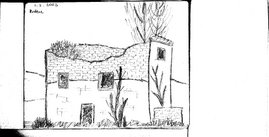
country house
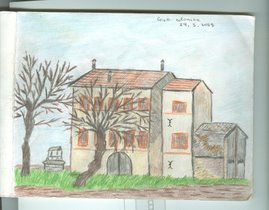
novi mesto (slovenia). commercial center

warsaw. iceskating little rabbit

viterbo (italy). shop
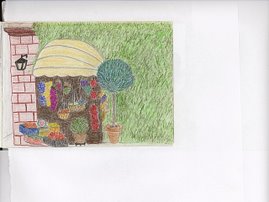
udine. helicopter

udine. tractor

motovun (croatia)
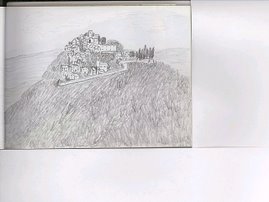
krasica (croatia)
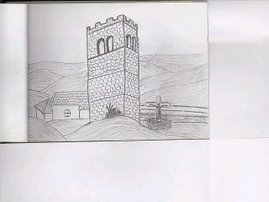
church in slovenia

slovenia
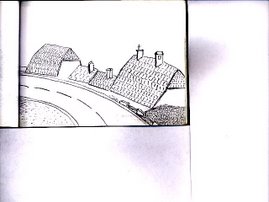
armour
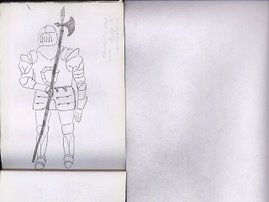
rome. palm tree

dog carrying a newspaper
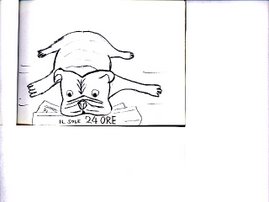
rome. campo dei fiori. giordano bruno's statue
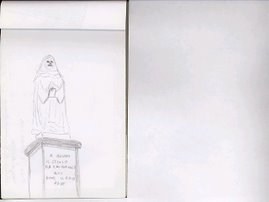
rome. Palazzo Venezia
